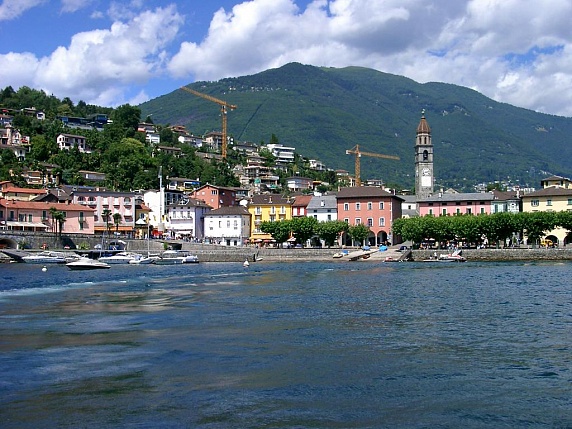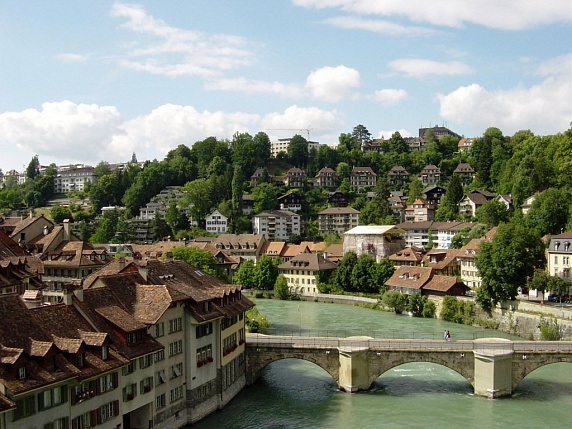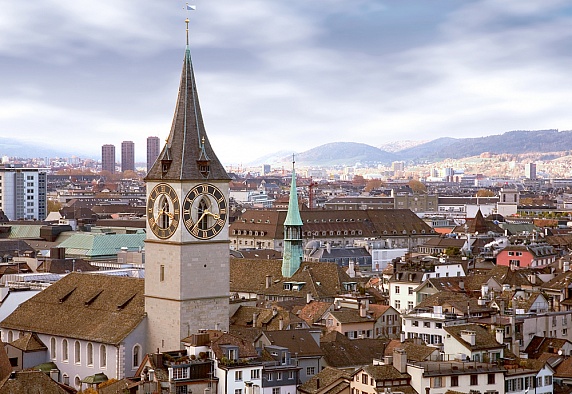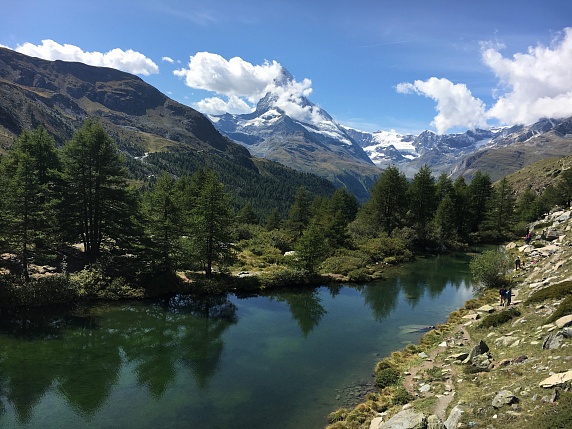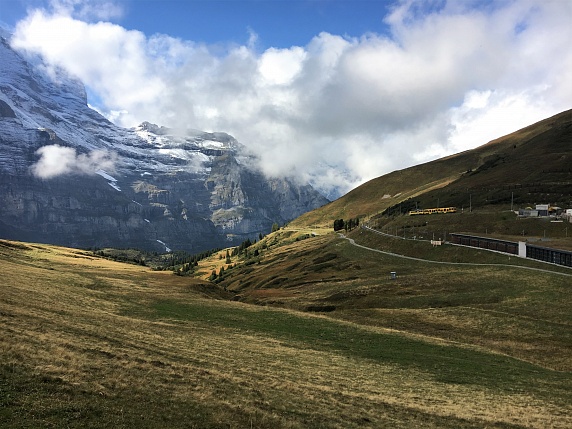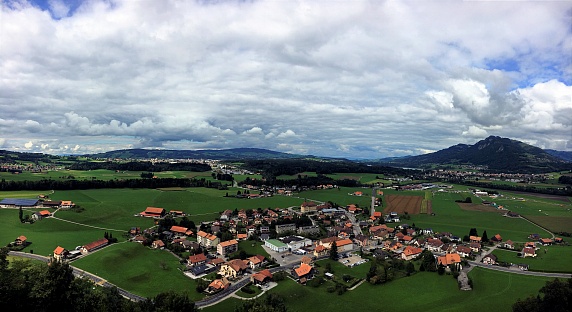 Швейцарская Конфедерация
Швейцарская Конфедерация
Interview by Permanent Representative of the Russian Federation to the United Nations Office and Other International Organisations in Geneva Alexey Borodavkin to the Russia Today TV channel, October 5, 2016
Question: Currently there is a lot of reporting and talk in the media on developments in Aleppo. How do you access the situation in this Syrian city?
Alexey Borodavkin: The humanitarian situation, as well as the overall environment and the situation in eastern Aleppo, is cause for serious concern. However, without any regard for objectivity, western and pro-western media place the blame fully on the Armed Forces of the Syrian Arab Republic and the Russian Aerospace Forces. In reality, that’s not the case at all. Militants of the terrorist group Jabhat al-Nusra, which is a branch of al-Qaeda, as well as the illegal armed groups that have joined them, have entrenched themselves in eastern Aleppo. In terms of ideology and the crimes they are committing, these groups are no different from Jabhat al-Nusra and Daesh. They carry out mass executions in eastern Aleppo and kill those who object their criminal ideology. They have blocked humanitarian access to eastern Aleppo through seven humanitarian corridors that were created by the Syrian Armed Forces with the assistance of the Russian Centre for Reconciliation of the Opposing Sides in the Syrian Arab Republic. They are keeping UN humanitarian convoys out of eastern Aleppo and distributing misinformation, claiming that the Russian Aerospace Forces are conducting strikes on humanitarian facilities. They are preventing the injured and the sick from being evacuated from this part of the city, and are using civilians as human shields. They have blown up water supply infrastructure in eastern Aleppo.
The Syrian government and Russia are ready to make every effort to ensure that all necessary humanitarian aid is provided to civilians in eastern Aleppo.
Question: Can you comment on the fact that the ceasefire is no longer being observed in Aleppo and near the city?
Alexey Borodavkin: As you know, an enhanced regime for the cessation of hostilities was introduced on September 12, 2016 in accordance with the Russian-US agreements. Not only did the Syrian side passively observe it but also actively fulfilled all obligations, proving by deed their commitment to the ceasefire. Offensive actions and shelling were stopped; the units of the Syrian Arab Republic’s Armed Forces were withdrawn from Castello Road, with a checkpoint established on its eastern part. The Syrian side even repaired the road’s northbound section, leading to the border with Turkey, used for providing humanitarian cargo to civilians. The opposition failed to carry out its obligations under the cessation of hostilities either in word or deed. Throughout the week starting September 12, some 350 violations by the so-called moderate opposition, which has merged with Jabhat al-Nusra, were recorded. Shelling was carried out, both against positions of the Syrian Armed Forces and heavily populated residential areas in Syrian cities, including with the use of improvised unguided rockets containing chlorine.
The obligation to separate the so-called moderate opposition from Jabhat al-Nusra and to cease military cooperation between them was not observed either. In fact, the Syrian Armed Forces found themselves in a situation where they had ceased military actions while Jabhat al-Nusra together with other illegal armed groups continued them, using the ceasefire as a chance to receive more arms and ammunition as well as new fighters from abroad. Moreover, leaders of these groups repeatedly and publicly claimed that they would not join the ceasefire and would continue military actions against “the Assad regime” together with Jabhat al-Nusra.
This could not last forever. That is why the Syrian Armed Forces, with the support of the Russian Aerospace Forces, struck back at Jabhat al-Nusra in several ways.
Question: Why has Washington suspended bilateral military cooperation on Syria?
Alexey Borodavkin: Moscow and Washington are both seriously concerned about the humanitarian situation and ceasefire violations in eastern Aleppo. This is why an agreement was reached at the level of foreign ministers to hold a bilateral meeting in Geneva to discuss a 72-hour truce and humanitarian access to eastern Aleppo via Castello Road. Unfortunately, the US delegation demanded from our experts at the Geneva talks that Russia assume unilateral commitments regarding a ceasefire and humanitarian access to eastern Aleppo. This request should not even be dignified by criticism. A truce and humanitarian access can only be ensured through the agreement among the warring parties, not unilateral commitments. The Syrian Armed Forces and the Russian Aerospace Forces were ready to start a 72-hour truce, including the cessation of air strikes, today with a possibility of extending it. We also agreed to take bilateral steps to ensure humanitarian access.
However, in order to effectively maintain the ceasefire we need to know, at the very least, who has joined the ceasefire on the other side. But the Americans have categorically refused to provide this information. In other words, the talks ran into Washington’s unwillingness or inability to name the so-called moderate opposition forces in eastern Aleppo and their deployment sites. It appears that the moderate opposition is a myth that was created to deceive the international community. It is therefore not surprising that nobody from the US administration ever says publicly which groups comprise the so-called moderate opposition. If Americans named the opposition groups they are supporting, many people would have reasonable doubts about how moderate the moderate opposition really is. It is regrettable that our partners have stooped to dealing with these extremists.
When we requested that the moderate opposition separate from Jabhat al-Nusra in eastern Aleppo and that the militants pull back from Castello Road to allow humanitarian access to this part of the city, our American partners refused to do so and subsequently announced that they were suspending military cooperation with Russia. This is regrettable.
Question: What are the prospects for international cooperation on a settlement in Syria?
Alexey Borodavkin: Of course, the US decision to suspend military cooperation with Russia in Syria has played into the hands of the jihadists, which is what they wanted to achieve when they violated the ceasefire in Aleppo and other parts of Syria. We only hope that Washington will not also attempt to undermine the multilateral formats of cooperation on Syria, primarily the International Syria Support Group (ISSG) and its auxiliary agencies – the Ceasefire Task Force and the Humanitarian Task Force.
We greatly value our cooperation with other partners in the ISSG. We believe that some of them, those who can influence the situation on the ground through their ties with the armed opposition groups in Syria, could do much more to maintain the cessation of hostilities, and we have urged them to do so.
We must now allow terrorists from Jabhat al-Nusra and Daesh to use differences between the ISSG co-chairs to strengthen their positions in Syria. Had the United States agreed to create a Russian-US Joint Implementation Centre (JIC) to coordinate counterterrorism strikes in Syria by the Russian Aerospace Forces and the US Air Force a few months ago, Jabhat al-Nusra and Daesh would be on the brink of military defeat now. And this would have opened the door to a peaceful settlement of the Syrian conflict as a whole.
Question: Do the intra-Syrian talks have a future?
Alexey Borodavkin: Our position on this issue has not changed. We believe that the next round of talks should be held as soon as possible, and that these talks should be held directly by the warring parties rather than through their agents. Of course, the UN Secretary-General’s Special Envoy for Syria, Mr Staffan de Mistura, should maintain his role as intermediary. We hope that various opposition groups will unite on the basis of a constructive platform for negotiations. It goes without saying that the Syrian Kurds must be represented at the talks. We believe that Mr de Mistura should be more decisive in addressing these issues. We appreciate Damascus’s resolve to participate in the talks and to discuss the creation of a representative national unity government that will include the current authorities, the opposition and independent candidates. In accordance with UN Security Council Resolution 2254, the talks should focus on drafting a new constitution, holding a referendum to adopt it and holding elections to new government bodies. In short, the Syrians themselves must determine the future of their country.
The majority of the moderate political opposition – the Moscow, Astana, Cairo and Hmeymim groups – are also willing to hold constructive talks with Damascus. Unfortunately, there are also opposition members who continue to put forward ultimatums and preliminary conditions instead of a negotiable platform. The longer they do this, the fewer chances they will have to take part in the political transition process.







